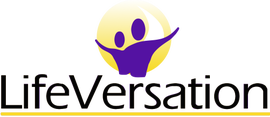 Within each of us is a power that can alter activity on the other side of the world. That power is our spoken words. “Our speech is power: which should be used to persuade, convert, and compel.”, says Ralph Waldo Emerson. Spoken and unspoken words have tremendous effect on the success and failure of our lives. In the movie called “A Thousand Words”, Eddie Murphy plays a literary agent named Jack McCall who had one thousand words to use before he would physically die. Even his unspoken words counted against his thousand. He had a high price to pay for the use of his words and so do we. Martin Luther said it this way, “You are not only responsible for what you say, but also for what you do not say”. If we seek to live successful lives, we must take full responsibility for our words. 3 Power Guides 1. Bank – A word bank is a place where people keep words they have learned for future references. We all possess a word bank in our heads. Our memory bank is constantly being inputted with words from our life experiences. Often times we are not aware of what's been deposited until withdrawn. Our withdrawals can show up as bullying, put downs, hating on positive situations, etc. We must filter what's deposited so our output power won't be inhibited. Focus on being responsible by allowing your word bank to be filled with more positive words than negative. Challenge yourself to withdraw words that provoke thought, words that encourage, words that will guide those who hear. 2. Boundaries– Great power is usually protected with a boundary to prevent misused from outsiders. When a baby is starting to crawl boundaries are put up to protect the child from harmful things. Those things don't seem bad to the child because they just want to explore and try it all. But for someone that understands the dangers they can see the harm that can come from the child's inexperience exploration. In our heads we can be like the exploring child, just want say things because of feelings and emotions. However, like the exploring child needs boundaries on their actions we need boundaries for our words. There are some word that we shouldn't let out. Formulate your word boundaries with your values. Allow them to govern them to be positive instead of a lethal weapon. Keep your boundaries refreshed by continuing to reflect on your responsibilities and goals. 3. Bond – Like it or not we are physical bonded to our words. Zig Ziglar said it this way, "Life is like an echo. What we send out, comes back. What we sow, we reap. What we give we get. What we see in others, exist in us." Before we speak think about the effects our words have on others and ultimately ourselves. You are bonded to your words of gossip, rudeness, lying, etc. and on the flip end when they are positive they represent you too. No matter how it might seem on T.V., negative words will not bring long term success. Your words express who you really are to the outside world. Be positive within so your words will show a positive person without. Summary - Dr. Laurence J. Peter says, “Speak when you are angry - and you'll make the best speech you'll ever regret.” Use your words wisely and they can unleash the world. Use them loosely and they can destroy your present and your future. Increase your positive words by building your bank, setting boundaries and better understanding the bond you have with each word that comes out.
0 Comments
 Winston Churchill said, "The price of greatness is responsibility." We all want to be great at something, even if it’s just talking to friends. But to be great in more areas requires us to be responsible in more areas. This means that we are the ones accountable for what’s going on. One day, as a manager, I was getting frustrated with everyone bringing me all their problems. I went to my mentor to vent and he stopped me after the first sentence and asked, "Aren't you the one responsible? Isn't dealing with problems what you do? Step up to your responsibility!" Wow! What a shut down but true. When dealing with our personal lives we have the responsibility to govern our actions. Which means dealing with our own personal problems and issues. Freedom doesn't come if we continue to push our responsibilities to the side. Friedrich Nietzsche said it this way, “Freedom is the will to be responsible to ourselves first.” True responsibility brings freedom. 3 Responsible Areas 1. Errors – It's inevitable, we all make some types of errors or mistakes daily. However, the irresponsible thing to do is to allow ourselves to live in the error – continuing to practice or support the mistake we’ve made. Responsibility responds to errors and mistakes with quick confessions and sincere efforts to make things right as soon as possible, no matter the cost. This is a challenge for me and I'm sure it is for all of us but is necessary if we want to live effective lives. Accepting more responsibility calls for you to looking at your messed up, accept your consequences, and work to make things right. Freedom comes by owning up to your errors not by covering them up. 2. Excuses – When we make comments like "I’m not responsible for this because..."or "I would've, but...” we could be making excuses to lighten the load for ourselves. Being responsible calls for us to know our place in what we do and then shut down the excuses we tell ourselves. Overcoming the habit of making excuses is one that must be developed. Start by admitting the real reasons why you did or didn’t do what was needed. If you’re too lazy, too tired, or just felt like doing something else, that is the truth. Admit the real issue instead of lying about it but, keep in mind that just admitting to it doesn't necessarily take away or soften the consequences. Josiah Stamp said it this way, “It may be easy to dodge your responsibilities, but you cannot dodge the consequences of dodging your responsibilities.” Be willing to accept the consequences of what you have done without giving in to an excuse. 3. Earn – Every stage of responsibility should be earned. It’s like climbing a ladder; we can’t get to the top unless we first stand on the first step. We should not be entitled to a higher level of responsibility if we cannot master the first step. My son was asking me one day to move the car so he could play basketball, I said, "I don’t know son, you haven’t been doing too well at parking and moving the lawn mower." I wasn't telling him that he could never move the car, I was saying that you need to prove yourself more with less responsibility. His freedom was where he was, moving the lawnmower successfully. More would come as he master that. If you desire more work, more trust, or more opportunities you must prove yourself on step one. If you're not moving, check yourself for signs of irresponsibility. Do you take for granted the responsibilities you have on step one? Watch how you say things like: this is boring, stupid, or a waste of my time. Work to take every opportunity as one that could bring freedom to your next level. Summary – Accepting responsibility is a must for success in your life. The facts state that – a more challenging, fun, and new thing will not keep you engaged in being more responsible in the long run. The things that will keep you engaged in a new responsibility are your deep values. Having a commitment to a clear purpose backed by your values like - honesty, positive attitude, respect, diligence and self-control are key to you having long term success.  Doreen Virtue says, “Boundaries are a part of self-care. They are healthy, normal, and necessary.” Boundaries are those limits that keep us in the areas that are required for success. Believe it or not, healthy boundaries enable us to experience more of life. For example: A speed limit sign sets boundaries of what speed is needed to be safe in an area on the road. The posted limited is not set to take the fun out of driving but to guide us in having a successful arrival. Just as so, life boundaries should be in place to help us accomplish our goals with the least amount of complications. Life without boundaries can be chaotic. 3 Boundaries 1. Guide – On a tour there is often an experienced person to lead the guest through unfamiliar areas. The guide instructs the guests how to be safe and experience the most at the same time. In our lives we need a guide, someone that has the experience, to help set the boundaries for our lives. A life guider can simplify and give the reasons for needed boundaries plus direct our steps to experiencing the excitements of a successful life. Find a guide (coach/mentor) who can help you establish boundaries for your life. Work hard to stay within the given limits and guidelines of those who have proven themselves wise. You might want to rebel but keep in mind what has been tested, tried and proven to be true might be great help to your destiny. Follow the guide! 2. Grip – Self-control comes from a root word meaning "to grip" or "take hold of". When we are willing to grip (limit) our words and actions within the boundaries set by our values and principles, we can see effective results in our lives. Benjamin Franklin said it like this, “Remember not only to say and do the right thing in the right place, but leave unsaid and undone the wrong thing at the tempting moment.” Gripping is taking control of our "whole" selves. It's allowing the boundaries to keep us in the right way, at the right time, doing the right things. Grip your desires from the temptations that conflict with your goals and values. Watch the distraction triggers that are counteractive to staying within the boundaries for your goals. These personal triggers might seem alright for the moment but have a heavy detour that can get you off task. Stay within the boundaries by gripping your mind to stay focused. 3. Govern – We only have one body; therefore, putting boundaries around our bodies’ means that we are in charge. I heard a story that reminded me of governing: Frederick the Great King of Prussia was walking on the outskirts of Berlin when he encountered a very old man proceeding in the opposite direction. "Who are you?” He asked. "I'm a king," replied the old man. "A king!" laughed Frederick. "Over what kingdom do you govern?" "Over me," he proudly replied. Governing yourself requires constant discipline and continuous tweaking of your boundaries. Make a decision to be in control of you. It is the most effective way to live a productive life. You can be the "king" or "queen" over your life. Summary – Life boundaries are essential to achieving a life of success. Get a reputable guider to help you focus through your life issues, grip your words and actions to match your goals and govern yourself to stay within your boundaries for success. Live a life with healthy boundaries.  A great quote says, “Everything we do is based on the choices we make. It’s not our parents, our past relationships, our job, the economy, the weather, an argument or our age that is to blame. We are responsible for every decision and every choice we make. Period!” Choices are inevitable to life. If we live, there will always be a choice to be made. So, how do we make the right or the best choice? Three things to control when faced with a tough choice. 3 Controls 1.Fear – Fear can dominate our choices. Fear can cause us to react before we think. However, all fear is not bad but needs to be separated with proper thoughts. Emotional fear and factual fear are the two that need to be separated. When we are emotionally fearful it could mean that we don’t fully understand what’s before us and need to gain more knowledge or understanding. When we are fearful due to facts means that we have an understanding of what the choice entails and the possible outcomes that are associated. Factual fear is what we should base our choices on. Gather the facts and be in control over your emotional fears. When fears are controlled, your choices can be solid and sure even if the outcome is not favorable. You know you have made the best choice possible. Experiencing failure after making a wise choice is an opportunity to grow and learn from your mistakes. Push daily to make better choices than the ones you made yesterday. 2. Thinking – Making controlled choices takes place in our minds first. There we often struggle with over-thinking and over-complicating our problems. Clarity must be made between an ‘over analysis’ and a ‘useful analysis. Let's work to make our thoughts useful. Restrict repetitive thoughts that are not producing actions. Over-analyzing’ can be detrimental to having a productive decision. Make your thoughts useful and productive with set standards and goals. These will help you in making the best choice possible. 3. Balance - Being balanced is key to making the proper choices in every situation. An unbalanced life can teeter one of two ways: 1) allowing our feelings to rule without facts or 2) being ruled by just the facts without our feelings. Either one is not a position for success. To have the success we so desperately need we must find a balance between the two. When working to have balance between feelings and facts, look for a moment to contemplate. With a little time and quietness you should be able to feel your gut instincts (feelings) and think though or research the facts. A balanced choice requires asking yourself a pro-active question: “Will the choice I’m about to make benefit everyone involved in the long run, especially me and my goals?” Be balanced in all your choices. Summary – You can control your choices to reflect who you desire to be. Control your fears by running them through the facts, don't over-think but put your thoughts into action steps to your goals, and balance your gut feelings and the facts to be real but solid. Make controlled choices! |
Archives
December 2020
|
"Delivering Peak Performance Behavior Training"
(601) 879-GOAL (4625)
[email protected]
Copyright © 2012-2024
(601) 879-GOAL (4625)
[email protected]
Copyright © 2012-2024

